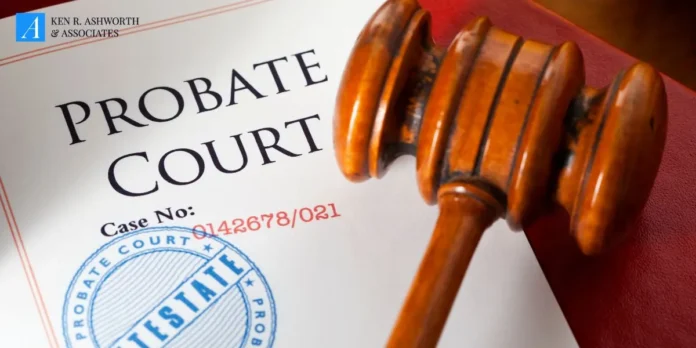When someone passes away in Nevada, their estate may go through probate, a legal process that can be time consuming, costly, and emotionally draining. For many families, avoiding probate becomes a priority because it allows property and assets to transfer more smoothly and privately. There are many ways to avoid probate in Nevada, and understanding these options can help individuals create an estate plan that saves both money and stress for their loved ones. With the right strategies, it is possible to pass on wealth without forcing heirs through the challenges of court proceedings.
Using a Living Trust as a Reliable Option
One of the most common ways to avoid probate in Nevada is by creating a living trust. A living trust allows a person, known as the grantor, to place their assets into the trust during their lifetime. These assets are then managed by a trustee for the benefit of the beneficiaries. Since the property is technically owned by the trust, it does not go through probate when the grantor passes away. Instead, the trustee distributes the assets directly to the named beneficiaries. Living trusts are flexible, private, and can be updated as circumstances change, making them a popular choice for families who want to avoid the delays and costs of probate.
Beneficiary Designations on Accounts
Another effective method is to use beneficiary designations on accounts. Many financial accounts such as life insurance policies, retirement plans, and even some bank accounts allow the owner to name a beneficiary. When the account holder dies, the funds go directly to the named beneficiary without involving the probate court. This approach is straightforward and ensures that money is passed along quickly and privately. Reviewing and updating beneficiary forms regularly is important, since outdated designations can cause disputes or direct assets to the wrong person. For individuals seeking simple ways to avoid probate in Nevada, beneficiary designations are one of the easiest tools available.
Joint Ownership with Right of Survivorship
Holding property with another person through joint ownership with right of survivorship is another way to bypass probate in Nevada. When two people own property together in this form, the surviving owner automatically inherits the deceased owner’s share. This applies to real estate, bank accounts, and certain other assets. Because the transfer happens by law, probate is not required for that property. However, it is important to understand that joint ownership must be properly structured and documented. For married couples or close family members, joint ownership can be a practical solution, but it may not be ideal in every situation, so legal guidance is often recommended.
Transfer on Death Deeds for Real Estate
Nevada allows property owners to use transfer on death deeds as a way to avoid probate. With this tool, a property owner signs and records a deed that names a beneficiary who will inherit the real estate upon the owner’s death. The owner continues to have full control during their lifetime, including the right to sell or refinance the property. When death occurs, ownership transfers automatically to the beneficiary without probate. This option is especially useful for homeowners who want to ensure their property passes smoothly without involving the court system, and it offers flexibility while preserving control during life.
Payable on Death Designations for Bank Accounts
Banks in Nevada allow account holders to use payable on death designations. This means the account owner can name one or more people to receive the funds after death. The designated individuals have no rights to the account while the owner is alive, but once the owner passes, the funds are released directly to them. This approach avoids probate because the bank follows the instructions on file rather than requiring court approval. Payable on death designations are simple to set up, and they provide peace of mind that money will go directly to the intended beneficiaries without delay.
Small Estate Procedures in Nevada
Nevada law provides special procedures for estates that fall below certain value thresholds, allowing them to bypass full probate. These simplified processes are faster, less expensive, and require fewer court filings. For families who may not have used trusts or other planning tools, this option can still make probate easier to handle. While it is not technically the same as avoiding probate entirely, it offers a lighter and more efficient version of the process. Knowing about these options can be valuable for families who need quicker resolutions and fewer costs when handling smaller estates.
The Role of Proper Estate Planning
Ultimately, the best way to avoid probate in Nevada is through careful and proactive estate planning. Every family situation is unique, and the right strategy depends on the type of assets, family relationships, and long-term goals. Some people may benefit most from a living trust, while others may rely more on beneficiary designations or property transfer deeds. Working with an experienced estate planning attorney can ensure that documents are correctly prepared, updated, and legally valid. By planning ahead, families can reduce costs, protect privacy, and prevent unnecessary court involvement when the time comes.
Conclusion
There are many ways to avoid probate in Nevada, from creating a living trust to using beneficiary designations, joint ownership, or transfer on death deeds. Each method offers unique advantages, but they all share the same goal of keeping assets out of the court system. By planning carefully and choosing the right strategies, families can save money, avoid delays, and reduce stress during an already difficult time. The key is to start early, understand all available options, and make decisions that fit personal and family needs. Avoiding probate is not just about saving on costs, it is also about ensuring peace of mind for loved ones.
